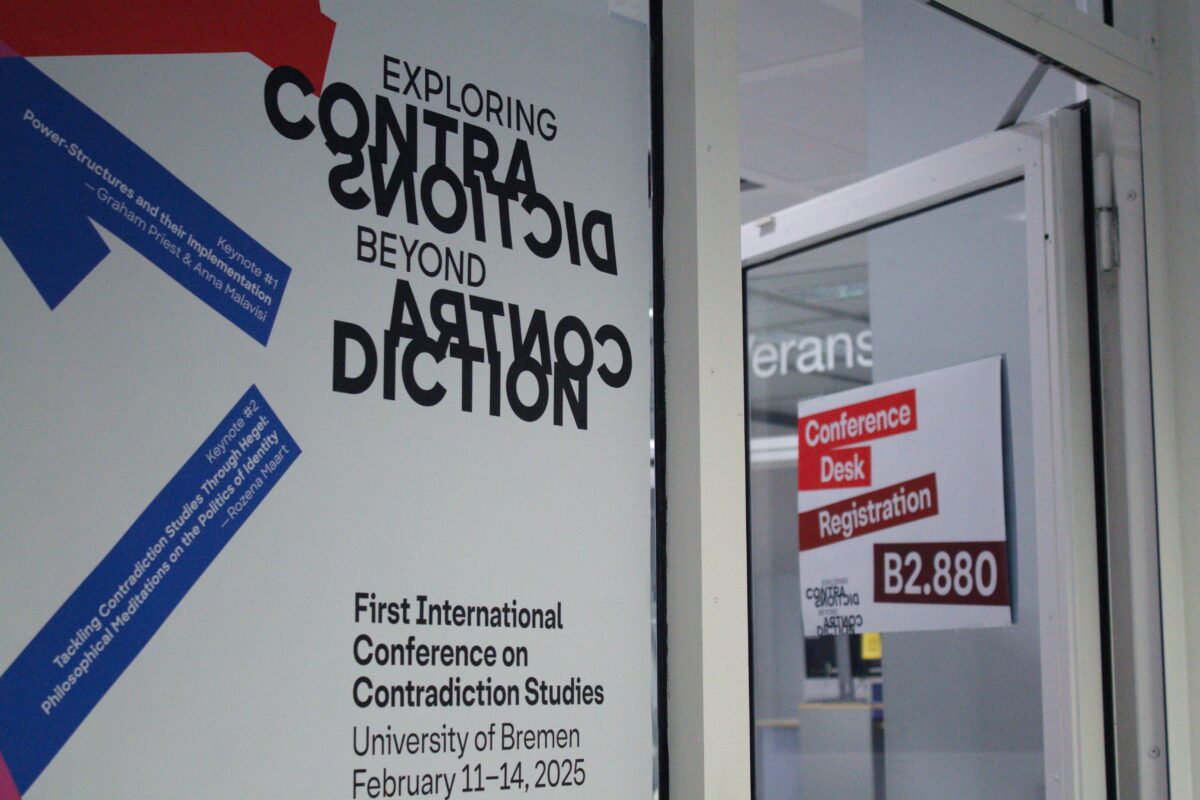Exploring Contradictions beyond Contradiction
Recap of the 1st International Conference on Contradiction Studies

From February 11 to 14, 2025, the Research Training Group 2686—funded by the German Research Foundation—hosted the 1st International Conference on Contradiction Studies at the University of Bremen titled “Exploring Contradictions beyond Contradiction.”
The conference featured a series of engaging keynote lectures, panels, and discussions, aimed at exploring the many facets of contradiction/s across disciplines. We were delighted to have a distinguished group of scholars and researchers join us for this groundbreaking exchange. The diverse perspectives and lively debates have undoubtedly enriched our understanding of contradictions and opened new avenues for future research.
We extend our heartfelt gratitude to all participants, especially to our Fellows and Mercator Fellows, for their invaluable contributions that made this conference a resounding success.
For those who were unable to attend or wish to revisit the discussions, the conference program and book of abstracts are available for download on our conference website, and video recordings of the keynote lectures can be accessed here.
We look forward to continuing this important dialogue and fostering further collaborations in the field of Contradiction Studies.